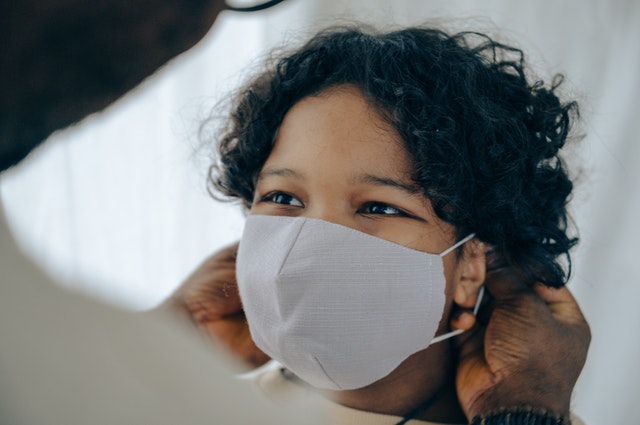Nancy Deering, a spokesperson for Newark public schools, just announced that New Jersey’s largest school district has no current plans to make face masks optional. If the mask mandate remains in place for 37,000 students and 6,000 teachers, Newark will be the only district in the state to require masks in school buildings.
This surprising plan has the support of Newark Teachers Union President John Abeigon, who told Advance Media yesterday that, while some teachers want to lift the mandate and are “super-frustrated,” he has to ” remind them, we’re not the only place that still requires masks” and “it’s more frustrating to whoever you infect, if you’re an asymptomatic carrier.”
Those who study the efficacy of face masks would disagree. Dr. Tracy Beth Høeg cites comparative data from Sweden in 2020 before vaccines were even available. When Sweden kept schools open for children up to age 16 without masks in the spring of 2020, she said, “not a single child died, and teachers were not at elevated risk for severe COVID-19.” These results, which also came from studies in Norway, Scotland, Finland, the Netherlands, France, Germany, Australia, and South Korea, led Høeg to believe the CDC would soon relax its strict masking rules. However,
Dr. Høeg came to learn that the CDC had considered input from teachers’ unions over the very science the organization had published in its own journal….’The push to reopen schools is rooted in sexism, racism, and misogyny,’ the Chicago Teachers Union’s Twitter account tweeted in December 2020.
There are other downsides to masks besides ineffectiveness in preventing COVID. This past January National Public Radio interviewed parents, teachers, and doctors, all supporters of COVID vaccines and boosters, who described a multiplicity of problems caused by forcing children to wear masks. One doctor explained that most masks used by students are not protective: “It’s very hard to even find pediatric KN95s or pediatric KF94s. And there’s no such thing as pediatric N95s,” he said. Special education teacher Brittany Gonzalez says kids who have to wear masks “take it off all day. It is a foreign piece of cloth on their face. And not all of them have the level of understanding as to why we’re doing it and what it means and how to wear it.” Parent Stephanie Avanessian notes her children “can never see their friends smile. They can never see their friends frown! They’re not developing empathy. It’s taken six months for my fifth-grader to make friends because it’s so hard to tell what people are doing.”
New Jersey’s current COVID count declined to 1,806 on Sunday, down 16% from a week ago and 36% from a month ago.
Yet, as of now, Newark district staff members and students will wear face masks.
Adding this, just up at the Washington Post by Dr. Leana S. Wen, a professor at George Washington University’s Milken Institute School of Public Health and the mother of a five-year-old and an infant:
“I accept the risk that my kids will probably contract covid-19 this school year, just as they could contract the flu, respiratory syncytial virus and other contagious diseases. As for most Americans, covid in our family will almost certainly be mild; and, like most Americans, we’ve made the decision that following precautions strict enough to prevent the highly contagious BA.5 will be very challenging. Masking has harmed our son’s language development, and limiting both kids’ extracurriculars and social interactions would negatively affect their childhood and hinder my and my husband’s ability to work.
To be clear, my family’s decision not to mask our kids should not be mislabeled as being antimask; we would never stigmatize other parents and caregivers for the difficult choices they must make. We are also far from covid minimizers; I’ve written extensively about the dangers of the coronavirus to children and am clear-eyed about the unknowns of long covid. Rather, my approach to this school year reflects the evolution of the pandemic and the acknowledgment that avoiding covid-19 cannot be the singular metric of people’s overall health and well-being.”



